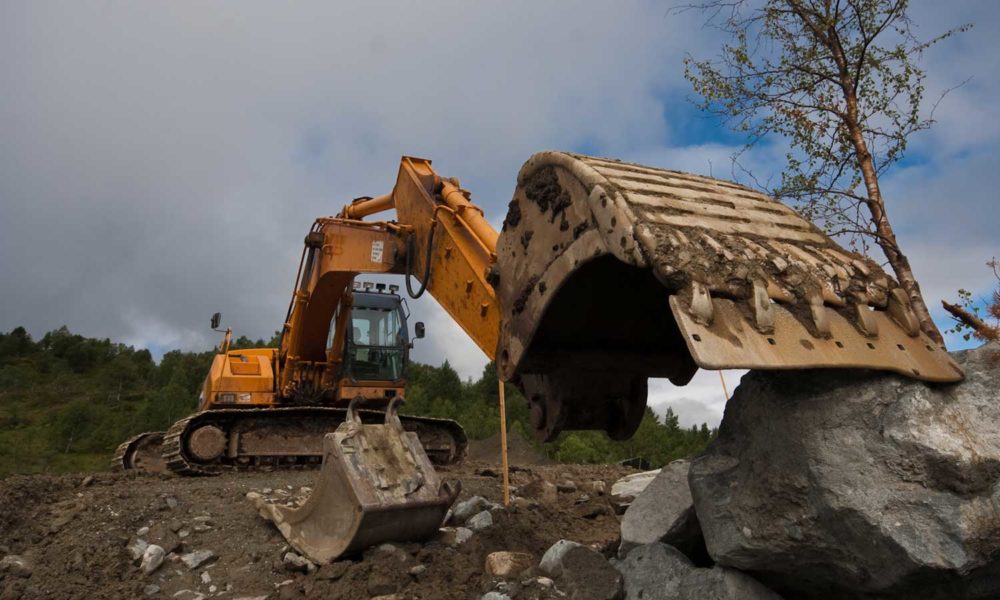Last Thursday, January 9, President Trump launched one of his most destructive assaults yet on our nation’s environmental and public safeguards. He proposed fundamental changes in how the federal government implements our nation’s bedrock environmental law—the National Environment Policy Act, or NEPA—signed 50 years ago by President Nixon.
NEPA may not have the public cachet of the Clean Air Act or the Clean Water Act, but it has been a cornerstone in protecting our air, our water, and our health (along with our public lands, wildlife, and yes, our climate) ever since the Cuyahoga River caught fire back in 1969. NEPA has also been a critical vehicle for giving the public a voice on what gets built in, on, over, under, or goes through their communities.
Make no mistake. This is a very big deal. Interior Secretary David Bernhardt touted the significance of this regulatory rollback. “Let me tell you, this is a really, really big proposal. The proposal affects virtually every significant decision by the federal government that affects the environment.” Given the priorities and track record of this administration, this quote alone should be enough to make us worry.
We have only a ridiculously short 60 days to comment on this far-reaching proposal—and the comment clock is already ticking. That’s why I’m sounding the alarm now.
What is NEPA?
In 1969, Congress had the bipartisan foresight to enact the National Environmental Policy Act, which directs the federal government to “use all practicable means and measures… to foster and promote the general welfare, to create and maintain conditions under which man and nature can exist in productive harmony, and fulfill the social, economic, and other requirements of present and future generations of Americans.” The law calls on the federal government to help ensure that each generation functions as a “trustee of the environment for future generations.”
NEPA requires federal agencies to assess environmental impacts before issuing permits for major infrastructure and construction projects, such as highways, roads, bridges, mines, and pipelines, as well as for oil and gas drilling operations and other federal actions. It also requires a process to give the public a voice in decision making, including consideration of alternatives. A noble cause and process that has served our nation and our communities well for decades, it ensures transparency, informed decision making, and a public voice. Without NEPA, an agency has no obligation to consider and inform the public of other ways of accomplishing the project goals; there is no other general requirement to consider alternative configurations of a federal action.
NEPA also established the Council on Environmental Quality (CEQ) in the Executive Office of the President to oversee implementation of NEPA. CEQ coordinates federal agencies’ environmental efforts, recommends policies, and issues implementing regulations and guidance.
Trump’s twisted plan for NEPA
It’s important to acknowledge that NEPA is not perfect. Impact assessments are complicated and can take a long time, often due to inadequate information submitted by the petitioner; some efficiency improvements could be helpful. NEPA has also had a checkered past in fully incorporating environmental justice concerns. But it is hardly the “regulatory nightmare” our president would have us believe.
Don’t be fooled by the familiar tropes being used to justify the proposed revisions. We’ve heard them all before – streamline, clarify, reform, modernize, cut red tape. More apt descriptors include short-sighted, reckless, costly, and a sell-out to polluters. Not hard to see the winners and losers in this proposal.
Some of the most egregious proposed revisions would:
- Redefine what constitutes a “major federal action,” thus narrowing the scope of what projects require environmental review.
- Eliminate the requirement to evaluate cumulative effects, and collapse the distinction between direct and indirect effects.
- Allow companies to conduct their own environmental review (under supervision of an agency).
- Set arbitrary timelines and page limits for environmental impact assessments.
- Hamper the ability for communities to engage meaningfully with the NEPA process.
This so-called streamlining and clarification is a blatant effort to limit consideration of climate change impacts, including both potential increases in greenhouse gas emissions and exposure and vulnerability to climate impacts, such as sea level rise. Both are some of the most significant cumulative impacts of environmental decisions. (“Cumulative”—the incremental impact of the action when added to other past, present, or reasonably foreseeable future actions.)
The world’s scientists have spoken clearly on both the present and future state of our climate. Only the Trump administration, with its antipathy to all things climate and its complicity with the fossil fuel industry, can willfully ignore the harm to communities unfolding before our eyes.
The proposal also collapses the distinction between direct and indirect effects. Direct being effects “caused by the action and occur at the same time and place” and indirect being effects “caused by the action and are later in time or farther removed in distance, but are still reasonable foreseeable.” These changes are no simple tweaks to language. Their implications are dire.
And while these proposed regulatory changes may be a welcome gift to the administration’s friends in the oil and gas industries, it doesn’t change the mandate of the NEPA statute itself, which the courts (and the court of public opinion) will consider. So it may be premature for them to pop corks.
The comment clock is ticking
Rolling back and weakening requirements for environmental reviews will impact communities across the nation for years to come. Rushing infrastructure projects that prioritize short-term industry gains over longer term health, safety, and environmental protections is short-sighted and unfair to communities on the front lines of construction projects that will impact their air, water, land, living patterns, and ultimately our climate. (For more info on the implications of this proposal, see here, here, here.)
The comment period on this flawed proposal is now open, and CEQ must receive comments by March 10. Two public hearings are also scheduled: February 10 in Denver and February 25 in Washington, DC.
Please join me in this fight! Let’s raise our voices together to stop this.

